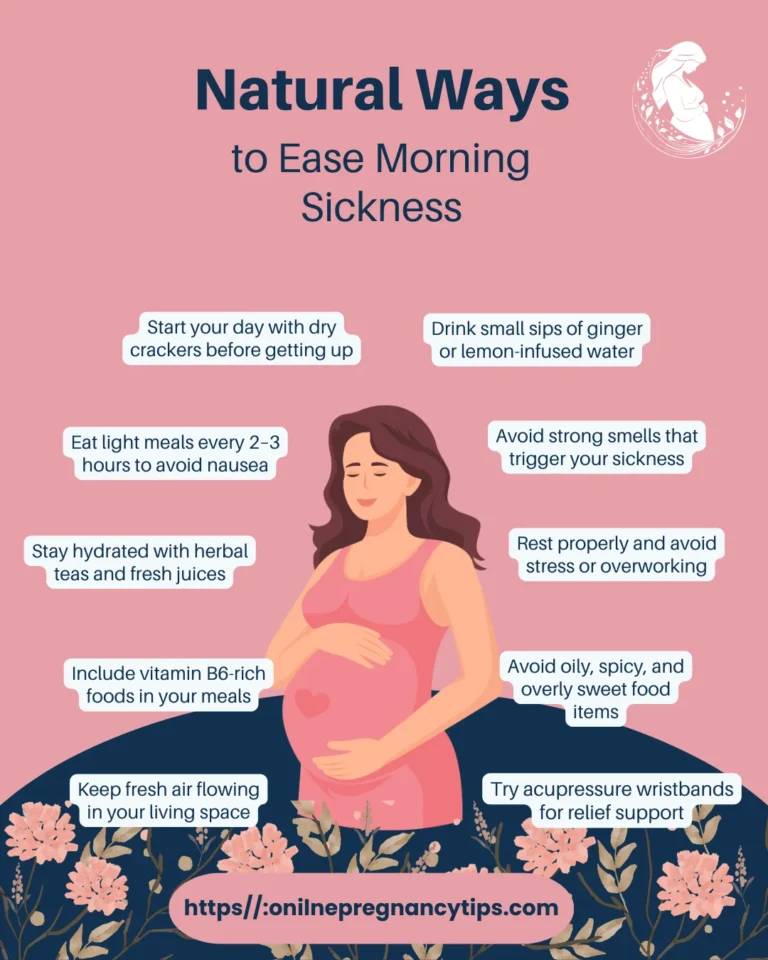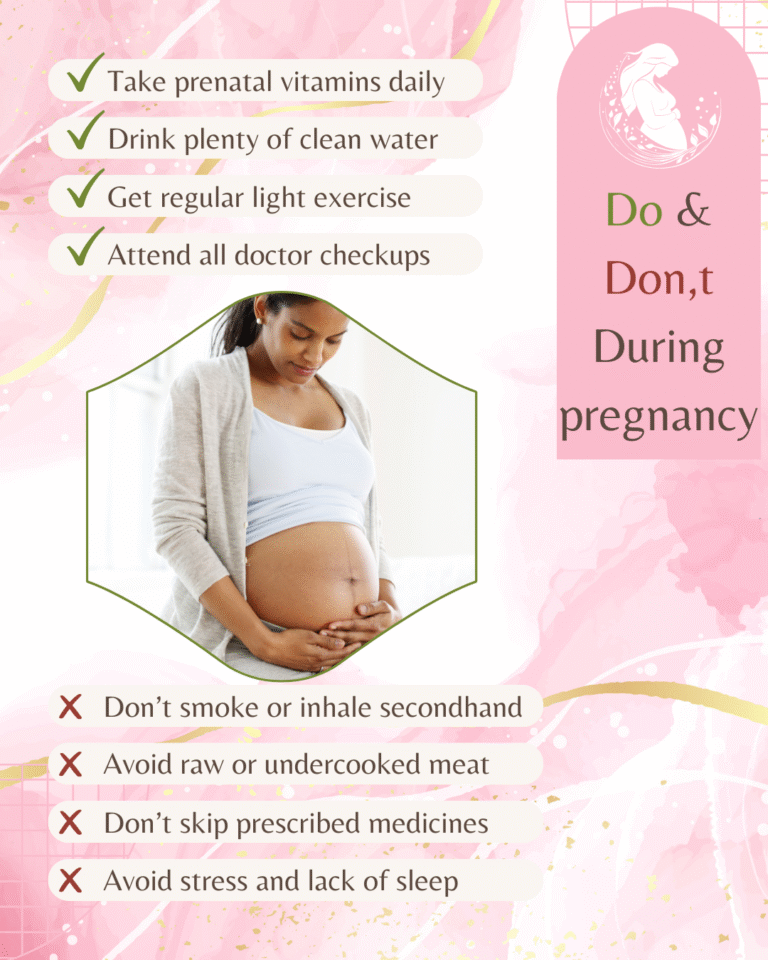

First Trimester Tips & What to Expect: A Complete Guide for New Moms
First Trimester Tips & What To Expect: A Complete Guide for New Moms

1. Introduction
The first trimester — covering week 1 to week 12 of pregnancy — is a time of immense change. For many, it is a rollercoaster of emotions, physical adjustments, and a growing awareness that life is about to change in the most beautiful way.
This guide is here to walk with you through this journey. Whether you’re a first-time mom or navigating a second pregnancy, you’ll find this resource filled with supportive, safe, and natural tips, backed by expert understanding and empathy.
2. Understanding the First Trimester
The first trimester starts from the first day of your last menstrual period (LMP) and lasts until the end of week 12. Even though you may not appear pregnant on the outside, your body is working overtime on the inside.
During this time:
The baby’s brain, spinal cord, and heart begin to form
Organs start developing
Hormones surge to support pregnancy
Your body prepares for the months ahead
3. Key Symptoms You Might Experience
Everyone experiences pregnancy differently, but here are some common first-trimester symptoms:
Morning sickness (nausea & vomiting)
Fatigue and drowsiness
Breast tenderness
Mood swings
Food cravings or aversions
Frequent urination
Light spotting or implantation bleeding
Constipation or bloating
These symptoms are often caused by rising levels of hCG, progesterone, and estrogen.
Everyone experiences pregnancy differently, but here are some common first-trimester symptoms:
Morning sickness (nausea & vomiting)
Fatigue and drowsiness
Breast tenderness
Mood swings
Food cravings or aversions
Frequent urination
Light spotting or implantation bleeding
Constipation or bloating
These symptoms are often caused by rising levels of hCG, progesterone, and estrogen.

4. Essential First Trimester Tips
✅ 1. Start Prenatal Vitamins Early
A daily prenatal vitamin with folic acid (400–800 mcg) is essential to prevent neural tube defects and support early development.
✅ 2. Eat Balanced, Frequent Meals
Instead of three big meals, try 5–6 small meals a day. This helps manage nausea and keeps blood sugar levels steady.
✅ 3. Get Enough Rest
Fatigue is normal. Your body is making a human — give it permission to rest more than usual.
✅ 4. Stay Hydrated
Aim for 8–10 glasses of water daily, and try infused water with lemon or cucumber to make it refreshing.
✅ 5. Track Your Symptoms
Keep a pregnancy journal or use an app to record symptoms, moods, appointments, and questions for your doctor.
✅ 6. Avoid Self-Medicating
Even common over-the-counter drugs may be unsafe during pregnancy. Always consult your OB-GYN before taking anything.
5. First Trimester Nutrition Guide
Eating right helps reduce fatigue, nausea, and supports fetal development.
🍎 Foods to Focus On
Fruits & vegetables (vitamin C, fiber)
Whole grains (B vitamins, energy)
Lean proteins (eggs, poultry, tofu)
Dairy or calcium-rich foods (milk, yogurt, almonds)
Healthy fats (avocado, nuts, olive oil)
🚫 Foods to Limit or Avoid
Raw or undercooked meat
Unpasteurized dairy
Excess caffeine (limit to 200 mg/day)
High-mercury fish (shark, swordfish, mackerel)
Alcohol and smoking
6. What to Avoid in the First Trimester
Heavy lifting or intense exercise
Hot tubs or saunas
Toxic cleaning products or strong chemicals
Unwashed produce
Stressful environments (as much as possible)
Keep your environment clean, calm, and supportive.
7. Common Concerns and How to Handle Them
🤢 Morning Sickness
Use ginger, peppermint tea, or small meals
Avoid greasy or spicy foods
🌡️ Spotting
Light spotting can be normal; heavy bleeding is not — consult your doctor.
😴 Extreme Fatigue
Nap when you can, and get to bed early.
Consider iron levels if fatigue is intense.
🤯 Mood Swings
Normal and often related to hormonal shifts.
Practice relaxation: meditation, journaling, deep breathing.
8. Doctor Visits and Screenings
Your first prenatal visit usually happens around 6–8 weeks. You can expect:
Confirmation of pregnancy via urine/blood test
Due date calculation
First ultrasound
Blood tests (blood type, Rh factor, infections, hemoglobin)
Genetic screening discussions
Nutritional advice
Schedule regular checkups and don’t miss them!
9. Emotional Changes & Mental Health
You’re not just growing a baby — you’re also transforming mentally, emotionally, and spiritually.
Signs of Normal Emotional Shift:
Crying easily
Feeling anxious or overwhelmed
Moodiness
Warning Signs (Talk to a Doctor):
Persistent sadness or hopelessness
Loss of interest in usual activities
Thoughts of harming self or others
Prioritize mental health and don’t hesitate to reach out for support.
10. Partner and Family Involvement
Involve your partner and close family members in the journey:
Attend doctor visits together
Share updates and ultrasound images
Talk about fears, hopes, and expectations
Healthy support systems reduce anxiety and strengthen bonds.
11. FAQs
Q1. Is it safe to exercise during the first trimester?
Yes, light exercises like walking, stretching, and prenatal yoga are safe unless your doctor advises otherwise.
Q2. When will I start showing?
Most first-time moms show around 12–16 weeks. So, usually not much in the first trimester.
Q3. What’s the most important supplement?
Folic acid is crucial in early pregnancy. Also, check for iron, calcium, and DHA.
Q4. Is cramping normal?
Mild cramps are often normal and due to uterus expansion. Severe or one-sided pain should be evaluated.
Q5. Can stress affect my baby?
Chronic stress may impact development, so managing stress is essential.
The first trimester is often the hardest — physically and emotionally. You may feel overwhelmed, tired, even scared. But remember:
🌸 You are stronger than you think.
🌸 Your body is doing miraculous work.
🌸 Rest, eat well, and be kind to yourself.
🌸 Ask for help. You don’t have to do it alone.
Your journey has just begun, and it’s already beautiful.





